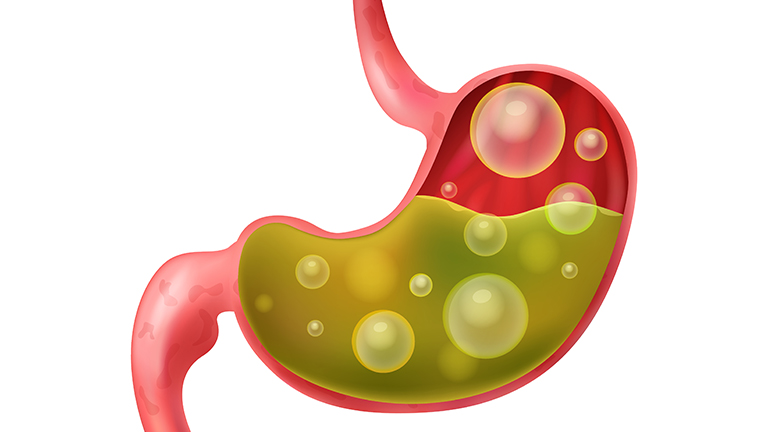Natural Remedies for Gas and Stomach: Gas and stomach discomfort are common digestive issues that affect millions of people worldwide. From mild bloating to severe stomach pain, these symptoms can disrupt daily life and overall well-being. Many individuals often turn to over-the-counter medications, but natural remedies can provide effective relief without the potential side effects of pharmaceuticals. Understanding the causes of gas and stomach discomfort is the first step in addressing this problem.
Excess gas in the digestive tract can result from several factors, including poor digestion, swallowing air, dietary habits, and underlying health conditions. Symptoms such as bloating, burping, abdominal cramps, and flatulence are signs that the digestive system may be struggling to process food properly. Fortunately, nature offers a variety of solutions that not only relieve symptoms but also support long-term digestive health. This article explores natural remedies for gas and stomach discomfort, emphasising herbal treatments, dietary strategies, and lifestyle practices.
What Causes Gas and Stomach Discomfort?
Understanding the root causes of gas and stomach discomfort is essential for effective treatment. Gas forms when bacteria in the intestines break down certain foods during digestion, producing carbon dioxide, methane, and hydrogen as byproducts. Some common causes include swallowing air while eating or drinking, consuming gas-producing foods, and digestive disorders such as irritable bowel syndrome (IBS) or lactose intolerance.
Dietary habits play a significant role in gas formation. Consuming high-fat foods, carbonated beverages, and processed foods can slow digestion and contribute to bloating. Similarly, eating too quickly or not chewing food properly can lead to swallowing excess air, which accumulates in the stomach. Stress and sedentary lifestyles can also exacerbate digestive issues, making it important to address lifestyle factors alongside dietary changes. By identifying the triggers, individuals can take proactive steps to prevent discomfort and maintain digestive health.
Symptoms of Excess Gas and Indigestion
Recognizing the signs of gas and indigestion helps in determining the most appropriate natural remedies. Common symptoms include abdominal bloating, cramping, burping, flatulence, nausea, and a feeling of fullness even after eating small amounts. Some people may also experience irregular bowel movements, heartburn, or a burning sensation in the upper stomach. These symptoms may be occasional or chronic, depending on underlying causes and lifestyle factors.
In some cases, persistent stomach discomfort may indicate an underlying digestive disorder, such as IBS, gastritis, or food intolerances. While natural remedies can provide relief, it is important to consult a healthcare professional if symptoms are severe, recurrent, or accompanied by unexplained weight loss or vomiting. Early identification and management of digestive issues can prevent complications and improve overall quality of life.
Natural Remedies for Gas and Stomach
Natural remedies for gas and stomach discomfort focus on supporting digestion, reducing inflammation, and promoting overall gut health. These remedies range from herbal treatments and dietary strategies to lifestyle practices that improve digestive function. Unlike medications, natural solutions work gently with the body’s systems, providing relief while enhancing long-term digestive wellness.
Herbal Teas for Digestive Relief
Herbal teas are a cornerstone of natural remedies for gas and stomach discomfort. They contain bioactive compounds that soothe the digestive tract, reduce bloating, and improve the breakdown of food.
Fennel Tea
Fennel tea is a highly effective natural remedy for gas and stomach discomfort. Made from fennel seeds, it contains anethole, a compound that relaxes the gastrointestinal tract and promotes the expulsion of trapped gas. Drinking fennel tea after meals can reduce bloating, ease cramps, and improve digestion naturally. Regular consumption also helps balance stomach acid and supports overall gut health. Fennel tea is gentle, safe for most people, and can be consumed daily. For added benefits, combining fennel with a pinch of ginger or peppermint enhances its digestive soothing properties.
Ginger Tea
Ginger is renowned for its digestive benefits. It contains gingerols and shogaols, compounds that stimulate digestive enzymes and reduce inflammation in the gut. Drinking ginger tea after meals can alleviate bloating, gas, and nausea. Regular consumption may also improve overall digestive efficiency and reduce discomfort associated with slow digestion.
Peppermint Tea
Peppermint tea is a natural and effective remedy for gas and stomach discomfort. It contains menthol, which has antispasmodic properties that relax the muscles of the gastrointestinal tract, easing cramps and reducing bloating. Drinking peppermint tea after meals can improve digestion, relieve trapped gas, and soothe nausea. Its calming effect on the digestive system also makes it beneficial for individuals with irritable bowel syndrome (IBS) or occasional indigestion. Peppermint tea is caffeine-free, gentle, and safe for daily consumption. Combining it with fennel or ginger enhances its digestive benefits and provides faster relief from stomach discomfort.
Foods That Reduce Gas
Dietary choices have a direct impact on gas formation and stomach comfort. Certain foods help promote digestion, reduce gas, and provide essential nutrients for gut health.
Yogurt and Probiotics
Yogurt is rich in probiotics, beneficial bacteria that maintain a healthy balance in the gut microbiome. Probiotics aid in digestion, reduce the fermentation of undigested food, and decrease gas production. Including probiotic-rich foods such as yogurt, kefir, and fermented vegetables in the diet supports long-term digestive health.
Pineapple and Papaya
Pineapple contains bromelain, and papaya contains papain, enzymes that aid protein digestion. These fruits can prevent indigestion and reduce bloating. Regular consumption of pineapple and papaya as part of a balanced diet improves the breakdown of complex foods, reducing the likelihood of gas formation.
Caraway Seeds and Herbs
Caraway seeds have been traditionally used to relieve digestive discomfort. They contain compounds that stimulate digestive juices, reduce gas, and ease bloating. Adding caraway seeds to meals or consuming them as a tea can support healthy digestion and alleviate stomach discomfort.
Home Practices for Stomach Comfort
Beyond herbal remedies and dietary adjustments, simple home practices can significantly improve digestive health and relieve gas.
Warm Compress or Heating Pad
Applying a warm compress or heating pad to the abdominal area relaxes the muscles and improves blood flow, helping to relieve cramps and bloating. The heat also stimulates the digestive system, promoting the movement of gas and reducing discomfort.
Gentle Exercise and Walking
Light physical activity, such as walking or yoga, enhances digestion and prevents the buildup of gas in the intestines. Gentle exercises help move trapped gas, reduce bloating, and improve overall gastrointestinal function.
Proper Hydration
Drinking adequate water supports digestion by helping break down food and facilitating the movement of waste through the intestines. Herbal infusions, warm water, and natural fruit drinks can further aid in reducing bloating and promoting digestive health.
Ayurvedic and Traditional Remedies
Ayurveda, the ancient Indian system of medicine, offers several natural remedies for gas and stomach discomfort, focusing on balancing digestive fire (Agni) and promoting gut health.
[INSERT_ELEMENTOR id=”5108″]
Triphala Powder
Triphala, a combination of three fruits, is known for its mild laxative and digestive benefits. It helps regulate bowel movements, reduce bloating, and improve nutrient absorption. Consuming Triphala powder with warm water can provide gentle relief from digestive discomfort.
Asafoetida (Hing) in Cooking
Asafoetida is a natural antispasmodic and carminative that prevents gas formation and aids digestion. A small amount added to cooking or consumed with warm water can alleviate bloating and abdominal discomfort. Its use in traditional cuisines highlights its long-standing effectiveness in digestive health.
Lifestyle Tips to Prevent Gas
Preventing gas and stomach discomfort requires consistent lifestyle practices that support digestion and reduce triggers.
Eat Slowly and Chew Properly
Eating slowly and chewing food thoroughly prevents swallowing excess air, which contributes to gas formation. Proper chewing also aids in the breakdown of food, making digestion easier for the stomach and intestines.
Avoid Gas-Producing Foods
Certain foods, such as beans, carbonated drinks, cruciferous vegetables, and high-fat processed foods, can increase gas production. Identifying and moderating the intake of these foods can significantly reduce bloating and discomfort.
Maintain a Regular Eating Schedule
Regular meal timings support consistent digestive rhythms. Eating at predictable intervals helps regulate stomach acid, digestive enzymes, and bowel movements, reducing the likelihood of gas accumulation.
Table of Natural Remedies for Gas and Stomach
| Remedy Type | Examples | Benefits |
| Herbal Tea | Ginger, Peppermint, Fennel | Relieves bloating, gas, and cramps; improves digestion |
| Probiotic Foods | Yogurt, Kefir, Sauerkraut | Balances gut bacteria, reduces gas |
| Digestive Fruits | Pineapple, Papaya | Contains enzymes that aid protein digestion |
| Ayurvedic Remedies | Triphala, Asafoetida | Regulates bowel movements, prevents gas formation |
| Lifestyle Practices | Walking, Hydration, Warm Compress | Enhances digestion, reduces bloating, relieves cramps |
FAQs About Gas and Stomach Discomfort
What foods cause gas and bloating?
Foods high in fiber like beans, lentils, cabbage, and carbonated drinks often cause gas. Some individuals are sensitive to lactose or gluten, which can also contribute to bloating.
Can herbal teas really reduce gas?
Yes, herbal teas like ginger, peppermint, and fennel relax the digestive tract, reduce gas formation, and improve bowel movements.
Are probiotics effective for digestion?
Probiotics balance gut bacteria, improve nutrient absorption, and reduce gas and bloating, making them highly effective for digestive health.
How can I prevent gas naturally?
Eating slowly, avoiding gas-producing foods, staying hydrated, and practicing light exercise can prevent excessive gas and stomach discomfort.
When should I see a doctor for stomach pain?
Persistent pain, unexplained weight loss, blood in stool, vomiting, or chronic bloating should be evaluated by a healthcare professional.
When to See a Doctor
While natural remedies provide effective relief, medical consultation is necessary in certain cases. Persistent or severe stomach pain, unexplained weight loss, chronic bloating, vomiting, or blood in stool may indicate a serious underlying condition, such as gastritis, peptic ulcer, or intestinal obstruction. Consulting a healthcare professional ensures proper diagnosis and treatment, preventing complications and supporting overall health.
Conclusion: Natural Remedies for Gas and Stomach
Gas and stomach discomfort can affect daily life, but natural remedies offer safe and effective solutions. Herbal teas like ginger, peppermint, and fennel, combined with probiotic-rich foods, digestive-friendly fruits, Ayurvedic remedies such as Triphala and Asafoetida, and simple lifestyle practices like proper hydration and gentle exercise, can significantly reduce bloating, ease cramps, and support long-term digestive health. By integrating these strategies, individuals can maintain a healthy gut and prevent future digestive issues. For more information on digestive health and natural remedies, visit the Mayo Clinic’s Digestive Health Guide.


